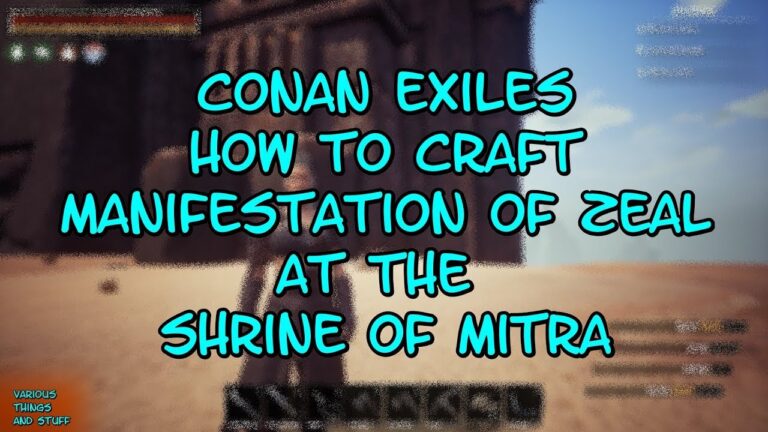Manifest Destiny Ate My Homework: Unpacking History
Manifest Destiny Ate My Homework is a creative expression highlighting the intertwining of American expansionism and personal accountability. This phrase humorously suggests that historical concepts can impact daily life.
Manifest Destiny, a 19th-century doctrine, justified the expansion of the United States across North America. It reflected a belief in American exceptionalism and the idea that the nation was destined to spread democracy and capitalism. This mindset influenced various historical events, including the annexation of territories and conflicts with indigenous populations.
The phrase “Ate My Homework” adds a contemporary twist, implying that the weight of historical narratives can overshadow personal responsibilities. By exploring this connection, we can better understand how history shapes our present and influences our attitudes toward growth and accountability in a rapidly changing world.
Origins Of Manifest Destiny
The concept of Manifest Destiny shaped America’s growth. This idea fueled expansion and influenced many decisions. Let’s explore where it came from and its impact.
The Phrase That Coined A Nation
The term Manifest Destiny first appeared in 1845. Journalist John L. O’Sullivan used it to describe America’s mission. He believed it was the nation’s right to expand westward.
O’Sullivan stated that the U.S. was destined to spread democracy. This phrase quickly gained popularity. It symbolized American exceptionalism and a sense of purpose.
Expansionist Ideology In Early America
In the early 1800s, many Americans wanted to expand. Factors driving this ideology included:
- Economic opportunities in new territories
- Access to natural resources
- A desire for land ownership
People believed expansion was God’s will. This belief justified actions toward Native Americans and other nations. The ideology led to events like:
- The Louisiana Purchase in 1803
- The Texas Annexation in 1845
- The Oregon Trail migration
These events showcased the growing belief in Manifest Destiny. America transformed into a nation of settlers and adventurers.
Myth Vs. Reality
The concept of Manifest Destiny often paints a rosy picture. It suggests a noble mission of westward expansion. This idea glorifies pioneers and settlers. However, the truth is much darker. Understanding the myths and realities is crucial.
Romanticizing Westward Expansion
Many stories romanticize the journey westward. They highlight adventure and opportunity. Here are some common myths:
- Pioneers faced only challenges and overcame them heroically.
- The land was empty and waiting for settlers.
- Settlers built a new, thriving society from scratch.
The reality tells a different story. Westward expansion involved hardship and struggle. Many settlers suffered from harsh conditions. Disease and lack of supplies were common. The romantic view ignores the suffering of many.
Consequences For Indigenous Peoples
Manifest Destiny had severe impacts on Indigenous peoples. Their lands were seized and cultures disrupted. Here are some key consequences:
| Consequence | Description |
|---|---|
| Loss of Land | Indigenous tribes were forcibly removed from their homes. |
| Cultural Erasure | Traditional practices and languages were suppressed. |
| Violence and Conflict | Many tribes faced violent confrontations with settlers. |
This reality shows a painful history. The myths surrounding Manifest Destiny often ignore these tragedies. Recognizing the truth helps us understand our past better.
Manifest Destiny In Modern Education
Manifest Destiny shaped American history. Its impact lingers in today’s classrooms. Teachers and students explore this concept. It raises questions about history, ethics, and identity.
Textbooks And Tension
Textbooks are essential in teaching history. They often present a biased view. Many textbooks glorify Manifest Destiny without critique. This creates tension among students and educators.
- Glorification of Expansion: Textbooks often celebrate westward expansion.
- Omission of Impact: They neglect the effects on Native Americans.
- Limited Perspectives: Few include diverse viewpoints.
This tension can lead to classroom debates. Students question what they read. They seek a fuller understanding of history.
Curriculum Controversies
Curriculum controversies arise around Manifest Destiny. Educators face challenges in teaching this topic. Debates often focus on representation and inclusivity.
| Aspect | Controversy | Impact |
|---|---|---|
| Historical Accuracy | Bias in textbooks | Misunderstanding of events |
| Inclusion | Omitting marginalized voices | Limited perspective on history |
| Ethical Considerations | Morality of expansion | Critical thinking skills |
Teachers strive to address these issues. They include multiple perspectives. This helps students grasp the full picture. Understanding is crucial for future leaders.

Cultural Impact Of Manifest Destiny
The concept of Manifest Destiny shaped American culture in many ways. It influenced how people viewed land, identity, and progress. This idea pushed the boundaries of the United States westward. It also inspired countless stories and characters in our culture.
Literature And Lore
Many authors have explored the theme of Manifest Destiny in their works. Classic literature reflects the struggles and triumphs of this era. Here are some notable examples:
- The Oregon Trail Diary – Chronicles the journey of settlers.
- Little House on the Prairie – Illustrates pioneer life and challenges.
- My Antonia – Captures the immigrant experience in the West.
These stories highlight the heroism and sacrifices of those who sought new opportunities. They also reveal the darker sides, like displacement of Native Americans.
Pop Culture References
Manifest Destiny continues to appear in modern pop culture. Movies, TV shows, and games often reference this theme. Here are some popular examples:
| Media Type | Title | Connection to Manifest Destiny |
|---|---|---|
| Film | Into the West | Explores the journey of settlers. |
| Video Game | Red Dead Redemption | Reflects the Wild West era and expansion. |
| TV Show | Deadwood | Shows lawlessness during westward expansion. |
These media pieces highlight the adventures and conflicts of the time. They also provoke thoughts about the consequences of expansion. The cultural impact of Manifest Destiny remains strong in storytelling today.
Homework And Historical Narrative
Homework plays a crucial role in shaping our understanding of history. It helps students engage with significant events like Manifest Destiny. This narrative influences how we view our past and present. Assignments can bridge the gap between textbooks and real-life implications.
Assignments Reflecting The Past
Assignments often reflect historical events and narratives. They encourage students to explore various perspectives. Here are some effective types of assignments:
- Creative Writing: Students write letters or diary entries from historical figures.
- Research Projects: Students investigate specific events related to Manifest Destiny.
- Group Presentations: Collaborate to discuss the impact of Manifest Destiny on different groups.
These assignments help students understand complex issues. They promote empathy and critical analysis of historical narratives.
Critical Thinking And Student Perspectives
Critical thinking is essential in history education. It allows students to question dominant narratives. Encouraging diverse perspectives enriches classroom discussions. Here are some strategies to promote critical thinking:
- Ask open-ended questions about Manifest Destiny.
- Encourage debates on its impact on Native Americans.
- Explore different historical sources and viewpoints.
These activities foster a deeper understanding of historical events. Students learn to analyze facts and form their own opinions.
Revisiting The Concept
Manifest Destiny is more than a historical idea. It shaped America’s expansion. This section explores its impact and relevance today. We will look at academic debates and revisionist histories that challenge old views.
Academic Debates
Scholars often argue about Manifest Destiny’s meaning. Some see it as a noble mission. Others view it as a justification for expansion and violence.
- Proponents highlight the idea of spreading democracy.
- Critics focus on the suffering of Native Americans.
- Some argue it led to unjust wars.
These debates shape how we view American history. They ask important questions about morality and ethics. Understanding these discussions helps us grasp the full impact of Manifest Destiny.
Revisionist Histories
Revisionist historians challenge traditional views of Manifest Destiny. They offer fresh perspectives on its consequences. Key points include:
- Manifest Destiny fueled the Mexican-American War.
- It justified the removal of Native Americans.
- It ignored the voices of marginalized groups.
These historians emphasize the need for a balanced view. They remind us of the pain behind expansion. Studying these histories enriches our understanding of America’s past.
| Perspective | Argument |
|---|---|
| Proponents | Spreading democracy and freedom. |
| Critics | Justification for violence and injustice. |
| Revisionists | Highlighting marginalized voices and consequences. |
These perspectives help create a richer narrative. Understanding Manifest Destiny requires looking at all sides.
Teaching Complex Histories
Teaching complex histories like Manifest Destiny requires careful planning. Educators must simplify difficult topics. They should encourage students to think critically and empathetically. Understanding diverse perspectives is essential.
Pedagogical Approaches
Effective teaching methods can make a big difference. Here are some approaches:
- Inquiry-Based Learning: Students ask questions and explore answers.
- Project-Based Learning: Students create projects to deepen understanding.
- Discussion Circles: Students share thoughts in small groups.
- Use of Multimedia: Videos and images help visualize concepts.
Encouraging Empathy And Understanding
Empathy is crucial for learning about history. Here are ways to foster empathy:
- Storytelling: Share personal stories from various perspectives.
- Role-Playing: Allow students to act out historical events.
- Field Trips: Visit historical sites or museums.
- Guest Speakers: Invite people with personal connections to history.
These methods help students connect emotionally. They learn to appreciate diverse experiences.

Manifest Destiny’s Legacy
Manifest Destiny shaped America’s past and future. It fueled expansion. This idea justified taking land. It left a lasting impact on culture, politics, and society.
Policy And Prejudice
The policies during Manifest Destiny created significant changes. The U.S. government made decisions that favored expansion. These decisions often ignored the rights of Native Americans and other groups.
- Indian Removal Act: Forcefully relocated Native Americans.
- Homestead Act: Encouraged settlers to claim land.
- Mexican-American War: Resulted in vast territorial gains.
Prejudice grew alongside these policies. Many viewed Native Americans and Mexicans as obstacles. This mindset justified violence and discrimination.
| Group Affected | Impact |
|---|---|
| Native Americans | Loss of land and culture |
| Mexican Citizens | Annexation of territory |
Looking Forward
Today, the legacy of Manifest Destiny is complex. It influences discussions on land rights and cultural identity. Understanding this history is crucial for future generations.
- Education about Native American history is essential.
- Conversations on land ownership and justice continue.
- New policies should consider historical impacts.
Reflecting on Manifest Destiny helps shape a better future. Acknowledging past mistakes fosters healing and understanding.

Frequently Asked Questions
What Is Manifest Destiny?
Manifest Destiny was a 19th-century belief in the United States that it was destined to expand across North America. This ideology justified territorial expansion and often ignored the rights of Native Americans and other groups. It played a crucial role in shaping American history and policies during that era.
How Did Manifest Destiny Affect Native Americans?
Manifest Destiny led to significant displacement and suffering for Native American tribes. As settlers moved westward, many Indigenous peoples were forcibly removed from their lands. This resulted in loss of culture, heritage, and lives, forever altering the landscape of Native American existence in the U.
S.
Why Is Manifest Destiny Controversial Today?
Manifest Destiny is controversial due to its implications for colonialism and racism. It promoted the idea of American superiority and justified the mistreatment of other cultures. Today, many people view it as a reflection of imperialistic attitudes that caused lasting harm to marginalized communities.
What Role Did Manifest Destiny Play In U.s. Expansion?
Manifest Destiny was pivotal in motivating westward expansion. It fueled the belief that America was meant to stretch from coast to coast. This ideology influenced policies such as the Louisiana Purchase and the annexation of Texas, significantly shaping the nation’s borders and identity.
Conclusion
Understanding the quirky phrase “Manifest Destiny Ate My Homework” reveals much about our history and culture. It highlights the interplay between ambition and responsibility. Embracing this concept can inspire us to tackle challenges creatively. Ultimately, recognizing our past can guide us in crafting a brighter future.
Stay curious and keep exploring!






